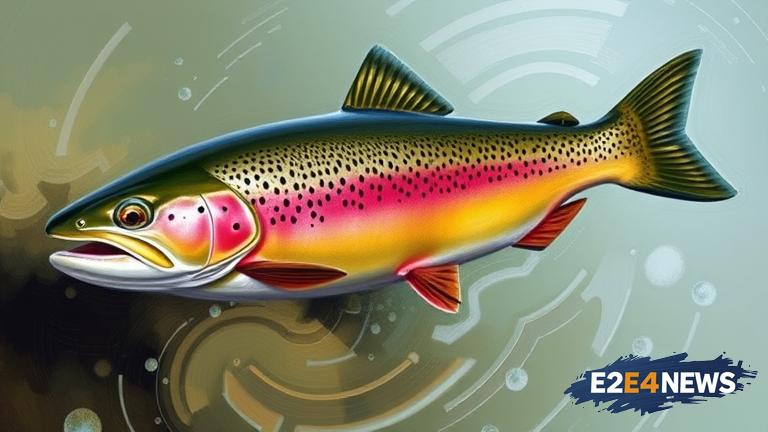The Pennsylvania Fish and Boat Commission has recently announced amendments to the rules governing the stocking of Class Trout Waters in the state. This move is expected to have a significant impact on trout fishing in Pennsylvania, with the commission aiming to improve the overall fishing experience for anglers while also conserving aquatic resources. The new rules are designed to ensure that trout stocking is carried out in a sustainable and responsible manner, taking into account the health of the fish, the quality of the water, and the needs of the local ecosystem. According to the commission, the amendments are the result of a thorough review of the existing rules and regulations, which were found to be in need of updating to reflect changing environmental conditions and advances in fisheries management. The new rules will apply to all Class Trout Waters in Pennsylvania, which are designated as such due to their high-quality trout habitats and populations. These waters are highly prized by anglers, who come from all over to fish for trout in the state’s many streams, rivers, and lakes. The commission has stated that the amendments will help to maintain the health and integrity of these waters, while also providing anglers with a more consistent and predictable fishing experience. The rules will also help to prevent the over-stocking of trout, which can lead to a range of negative environmental impacts, including the degradation of water quality and the disruption of native fish populations. In addition to the environmental benefits, the new rules are also expected to have economic benefits, as a healthy and sustainable trout fishery can support local businesses and communities. The commission has worked closely with stakeholders, including anglers, conservation groups, and local communities, to develop the new rules and ensure that they meet the needs of all parties involved. The amendments have been welcomed by many in the fishing community, who see them as a positive step towards ensuring the long-term sustainability of Pennsylvania’s trout fishery. However, some have expressed concerns about the potential impact of the new rules on the fishing industry, particularly with regards to the potential for reduced trout stocking in some areas. The commission has sought to address these concerns, stating that the new rules are designed to be flexible and adaptable, and that they will continue to work with stakeholders to monitor and evaluate the effectiveness of the amendments. Overall, the updates to the rules for stocking Class Trout Waters in Pennsylvania are seen as a positive development for the state’s trout fishery, and are expected to have a range of benefits for both the environment and the local economy. The commission’s efforts to engage with stakeholders and develop rules that meet the needs of all parties involved have been widely praised, and it is hoped that the new rules will help to ensure the long-term sustainability of Pennsylvania’s trout fishery. The amendments are also seen as an important step towards promoting responsible and sustainable fishing practices, and towards protecting the state’s natural resources for future generations. In the coming months and years, the commission will continue to monitor and evaluate the effectiveness of the new rules, and will make any necessary adjustments to ensure that they are meeting their intended goals. The updates to the rules are also expected to have implications for other states and countries, as they seek to develop their own sustainable fisheries management practices. As such, the Pennsylvania Fish and Boat Commission’s efforts to develop and implement the new rules are being closely watched by fisheries managers and conservationists around the world. The commission’s commitment to sustainability and environmental stewardship has been widely recognized, and it is hoped that the new rules will serve as a model for other jurisdictions to follow. In conclusion, the amendments to the rules for stocking Class Trout Waters in Pennsylvania are a significant development for the state’s trout fishery, and are expected to have a range of benefits for both the environment and the local economy. The commission’s efforts to engage with stakeholders and develop rules that meet the needs of all parties involved have been widely praised, and it is hoped that the new rules will help to ensure the long-term sustainability of Pennsylvania’s trout fishery.





